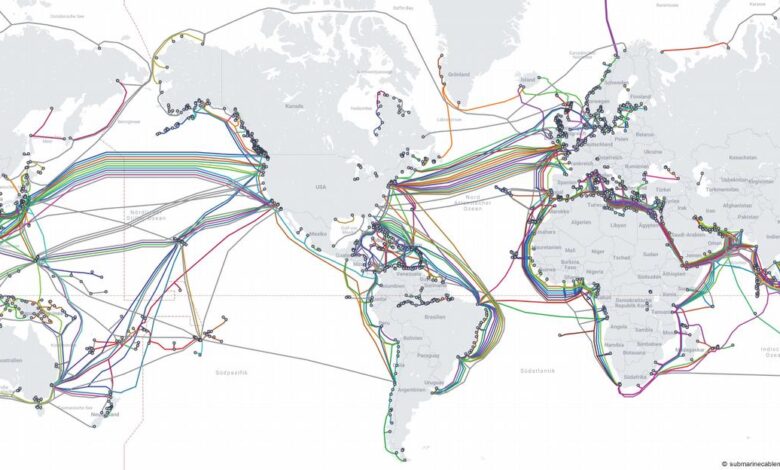
Undersea cables spanning approximately 1.4 million kilometers form the backbone of global telecommunications and international trade, carrying over 95% of intercontinental internet traffic.
Despite their critical role, according to dw.com, these cables remain vulnerable to accidental damage from ship anchors and deliberate sabotage.
Recent incidents in the Baltic and Red Seas have highlighted their fragility, prompting Asian and European powers to launch international efforts to safeguard this vital infrastructure.
At Asia’s Shangri-La Dialogue security forum, Singapore’s Defense Minister Chan Chun Sing emphasized the need for collective defense, stating that securing only isolated points is insufficient; both ends of the cables must be protected, he said.
NATO nations have increased patrols in the Baltic Sea following repeated cable failures, which Western officials suspect may be linked to Russian vessels, though no concrete proof exists.
In the Red Sea, cables were severed in early 2024 by anchors from a cargo ship sunk by Houthi militants, disrupting internet connectivity between Europe and Asia and affecting financial and communication systems.
Meanwhile, Southeast Asia faces its own tensions — Taiwan detained a Chinese-crewed vessel after cable damage near the island, which Beijing claims as its territory. China is also pressuring cable consortia operating in the disputed South China Sea, and is reportedly developing sophisticated cable-cutting technology.
Southeast Asian countries are concerned not only about geopolitical risks but also natural disasters threatening subsea cables, which are vital for expanding renewable energy projects like offshore wind farms.
Vietnam plans to add up to four new cables to enhance connectivity and power supply, seeking foreign investment mainly from China and the US, though it aims to avoid dependence on either amid growing US-China rivalry. Experts suggest European companies could help the region navigate this dilemma.
In response, the European Union has launched a Cable Security Action plan promoting “advanced cable diplomacy” and greater cooperation with Indo-Pacific partners.
However, the US has urged Europe to limit its engagement in Southeast Asia to focus on European security.
EU foreign policy chief Kaja Kallas countered this, stressing the interlinked nature of Indo-Pacific and European security challenges and calling for joint efforts against covert “shadow fleets” and enhanced maritime laws to protect submarine cables.
Together, these developments underline the urgency of international collaboration to defend the undersea cable networks that sustain the modern world’s digital and economic lifelines.












